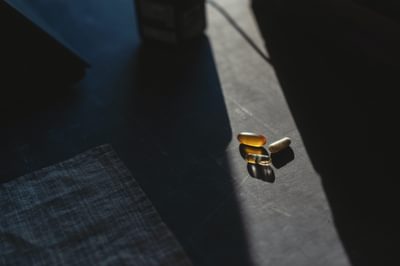

Our body requires a complex blend of vitamins and nutrients to ensure we stay healthy and well. Amongst many, our body’s turn to zinc to support the body’s development and growth.
Why are zinc supplements important?
Zinc is a mineral that is essential for many of the body's normal functions and systems. Zinc also supports normal growth and development during pregnancy, childhood and adolescence. Having enough zinc is important for skin health and for wounds to heal and repair, as well as boosting our metabolism and immune system to keep us healthy.

What are the benefits of taking a zinc supplement?
Taking a zinc supplement can offer several health benefits, especially if you’re deficient or need the extra support that this mineral can give.
Taking zinc, whether as part of MultiVit Vegan Supplements or alone, can offer the body many benefits including:
It's important to note that while zinc supplementation can be beneficial for those with a deficiency or increased needs, if you take too much it can have a negative effect and be toxic. Before taking a zinc supplement and adding it to your daily routine, speak with your P or a health practitioner to be sure what would work best for you and your body.
How much zinc should you have per day?
The recommended daily allowance (RDA) for zinc can vary depending on factors such as age, gender, lifestyle and individual health conditions.
It's worth noting that certain groups of people may have an increased need for zinc, such as pregnant or lactating women, women going through menopause, vegetarians and vegans as well as those that have certain medical conditions that affect zinc absorption.
Currently the Recommended Dietary Allowance (RDA) for adults 19+ years is 11 mg a day for men and 8 mg for women. Pregnancy and lactation requires slightly more at 11 mg and 12 mg.
We can get zinc from our diet from foods such as meat, dairy products, nuts, seeds and legumes. However it can be helpful to increase our intake via a daily supplement such as MultiVit Vegan Supplements.
What are the signs of a zinc deficiency?
Zinc deficiency can lead to a variety of symptoms and health problems and can also have a serious effect on our health long term.
Some common signs that you could have a zinc deficiency include:
It's important to note that the symptoms of zinc deficiency can be nonspecific and may overlap with other health conditions. If you suspect you have a zinc deficiency, speak to your GP or chosen health practitioner for a full assessment and diagnosis that's right for you.